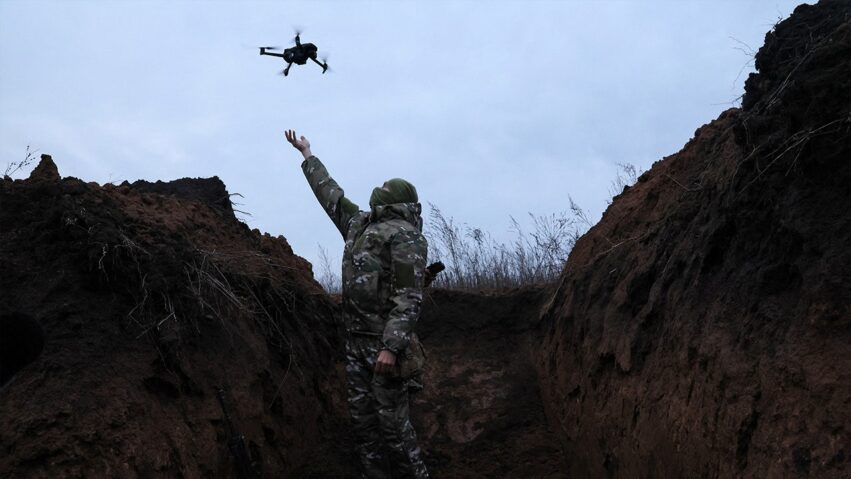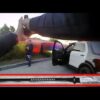It’s a scenario that has played out many times both on Russian and Western social media platforms.
A video of a soldier, either Ukrainian or Russian, set in a ravaged and often exposed position who is spotted before he even knows he is being tracked.Â
The soldier attempts to run, hide or out-maneuver the relentless robot in the sky. Â
Some react in panic, others give in to their seemingly inevitable fate. But even watching from poor-quality video feed, the viewer can see the moment when the hunted man realizes he’s been bested, and there is no escape.Â
RUSSIA LAUNCHES BARRAGE OF 99 DRONES AND MISSILES ON UKRAINE’S ENERGY SYSTEM, OFFICIALS SAY
Drones have not only made modern warfare more dangerous for soldiers on the ground, but have completely changed how military units function on the front lines, particularly in the age of Artificial Intelligence.Â
“There is 100 percent … an AI-enabled autonomous weapon arms race happening in Ukraine between the Russians and the Ukrainians,” Russia analyst and leader of the Geospatial Intelligence Team for the Institute for the Study of War, George Barros told Fox News Digital.Â
“It’s not a question of whether or if it will be implemented, it’s more of a question of when.”
There is already evidence that some AI integration has been employed with drones used by both the Ukrainians and the Russians.Â
While there has not been credible evidence suggesting that AI has been utilized for strike capabilities, it has been used to acquire battlefield intelligence by identifying different types of adversarial weaponry and machinery.
At the moment, there are ways to defeat drones, including by blasting communication radio frequencies that the remote operator uses to control the drone, explained Barros.
But integrating AI technology could enable drones to be pre-programmed to identify and hit certain targets without needing to communicate with an operator.Â
Barros said he does not have any insight on whether the Russians or Ukrainians are outpacing the other in the AI race, but he noted that modern warfare is driving AI advancement.
“The battlefield requirements demand those sorts of solutions,” Barros said. “And it’s moving a lot faster I think than most people in Washington really realize.”
The war with Russia has raged on for more than two years and while many of the scenes emerging from the battlefields are eerily reminiscent to European wars of the 20th century, some technological advances have created modern nightmares for military strategists and soldiers alike.
“Maneuver in modern war is extremely difficult to pull off, and it’s due to the tactical innovation of drones,” Barros said, referring to a military strategy of surprise that is employed to achieve a positional advantage.
“And right now, no military theorist has an answer or solution for how to restore maneuver to the battlefield,” he added.
Military analysts are reportedly baffled by how the fundamentals of wartime principles have shifted as previous Russian, U.S. and NATO military doctrines have largely all been invalidated by the realities of drone warfare, explained the expert.Â
“Tactical surprise is basically eliminated now, thanks to this super proliferation of these cheap quadcopter drones,” he added. “It’s impossible to find concealment. It’s almost impossible to find cover.”
Barros said that this change in military doctrine is one of the reasons Ukraine’s 2023 counteroffensive failed.Â
The Russian military was able to successfully employ drone reconnaissance capabilities in tandem with artillery and drone strikes to degrade the Ukrainian forces before they could advance on Russian positions.
“When you take our doctrine, our best manifestation of it, and we put it against what the tactical reality is with the lack of this cover and concealment, our battle plans they all fall apart,” Barros said.
“It’s a big problem. It’s a really big problem,” he added.Â
Battlefield demands spark AI race in Ukraine as war with Russia rages on ,



















